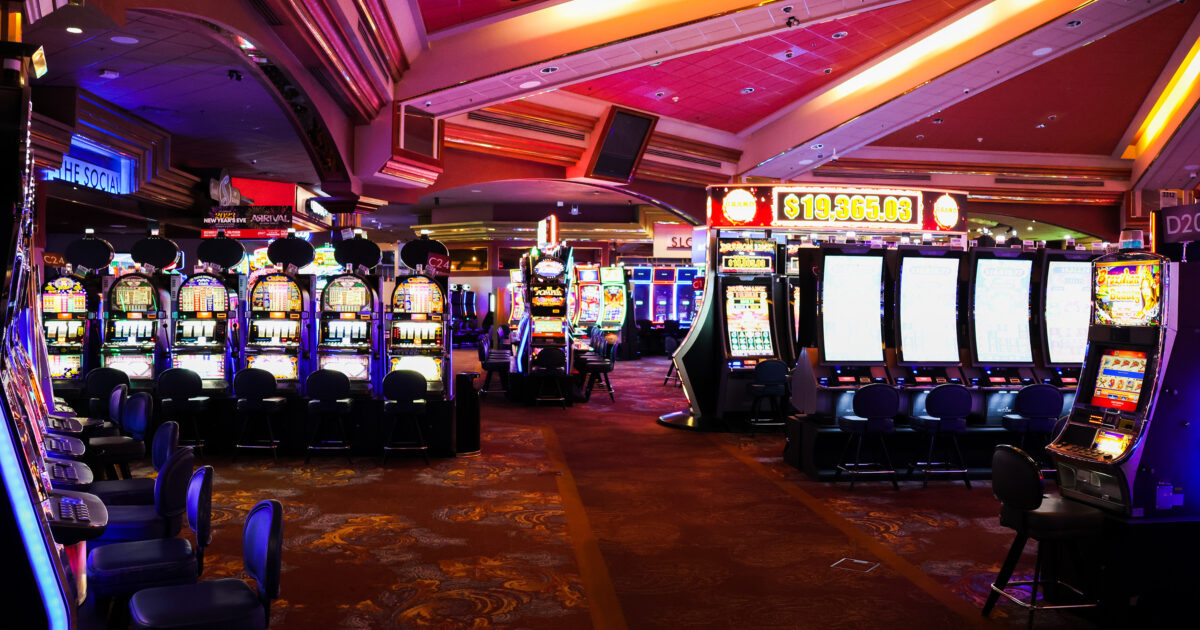
When we think of gambling games, the first images that frequently come to mind are those of rotating wheel devices, poker tokens clinking on fabric surfaces, and cubes flying across a gaming surface. While many view these games as mere pastimes fueled by chance, a deeper exploration reveals a fascinating blend of tactics, skill, and community interaction that raises them far beyond basic chance. Regardless of whether you are a experienced player or a curious newcomer, understanding the nuances of these games can significantly enhance your enjoyment and understanding.
Casino activities have evolved over centuries, with various cultures contributing to their diverse histories and different forms. From the intricate tactics of 21 to the deception methods in card games, players engage in a battle of wits as much as a gamble on odds. This dynamic interplay between luck and skill creates a exciting atmosphere that draws millions to casinos worldwide. As we explore the world of table games, we will uncover the methods that can shift the odds in your favor and the social aspects that make these activities a favored choice for entertainment and interaction.
The Approach Behind Casino Games
Casino games often involve a mix of ability and luck, making them fascinating for participants who enjoy a challenge. Each title has its unique set of guidelines and tactics that can affect the outcome. For instance, in games like 21, participants are required to use strategies like card counting and understanding the probabilities to make smart decisions. This expertise can greatly improve the victory potential, differentiating experienced participants from beginners who may depend entirely on chance.
Conversely, games such as the roulette may appear to be entirely based on luck, but tactical thinking can also play into the equation. Participants can choose between different wagering strategies, such as the Martingale system, in which they raise the bets after losses. This approach can establish a more methodical way to the activity. Grasping the probabilities of specific bets can also assist players make better decisions on the roulette table, demonstrating that even titles of chance, tactics can enhance the enjoyment.
Furthermore, poker stands out as a game that strongly emphasizes strategy. In contrast to most casino titles, the game of poker merges ability, psychology, and chance. Participants must also concentrate on the hands they are dealt but also consider their opponents behavior and wagering patterns. kuwin789 Mastering principles like position, the odds of the pot, and reading bluffing is crucial for success. This depth of strategy in poker often creates to a more immersive encounter for participants, as the decisions and skills significantly impact the game’s results.
Comprehending Probability and Odds
In the world of gambling matches, likelihood and odds have a crucial role in deciding a player’s possible consequences. Every game has its own collection of rules that define how the probability of winning or losing is calculated. For case, in games like 21, participants have a chance to influence their odds through tactics, whereas in matches like the wheel, the outcomes are purely governed by chance. Understanding how these chances are measured can substantially affect how a gambler deals with the match.
Odds are typically expressed in two forms: fractional and numeric. Fractional odds show the ratio of the amount gained to the amount staked, whereas numeric ratios show the overall payout for a winning wager, which includes the stake. For example, if a game has ratios of 5 to 1, this implies that for every one unit bet, a player could win five units if they win. Learning how to interpret these ratios allows gamblers to assess their possible winnings and make more educated decisions during play.
Gamblers should also be aware of the casino advantage, which is the casino’s built-in benefit over the gamblers. Each match has a distinct house edge, and comprehending this idea is crucial for handling one’s hopes and bankroll. Activities with a reduced house edge, such as 21 and chemin de fer, typically offer superior ratios for gamblers compared to activities like slot machines and lottery. By recognizing the relationship between probability, odds, and the house edge, gamblers can improve their gambling experience and plan more effectively.
The Aspect of Casino Table Games
Table games at casinos are often seen as a center of social interaction, bringing players together in a collective experience that goes far beyond the mere act of playing games. The atmosphere at a poker table can be vibrant, with gamblers engaging not only with the game itself but also with one another. Laughter, cheers, and, sometimes, playful teasing create connections that improve the overall enjoyment of the gaming experience. This communal aspect can turn a alone endeavor into a dynamic gathering, making table games particularly enticing.
One of the intriguing elements of table gaming is the way it cultivates friendship among players. Whether it’s collaborating to beat the dealer at a dice table or exchanging tales between hands in a card game, the environment encourages interaction. Players often share tips or tactics, creating a sense of community that boosts the fun. This interpersonal atmosphere can make new gamblers feel included and less daunted by the competitive nature of casino games. As the game continues, friendships may form, leading to a sense of belonging that keeps participants returning to the table.
Moreover, the social aspect of gaming at tables extends beyond just the participants. Dealers play a vital role in facilitating interaction and maintaining the flow of the game. Their ability to engage players with warm dialogue and their expertise in running the table can create an inviting atmosphere. This connection between players and dealers adds another layer of enjoyment, where gamblers feel bonded not only to each other but also to the staff. Such interactions are often what make the experience unforgettable, as participants leave with tales to tell and relationships made, reinforcing the notion that gaming at tables are truly about more than just chance.